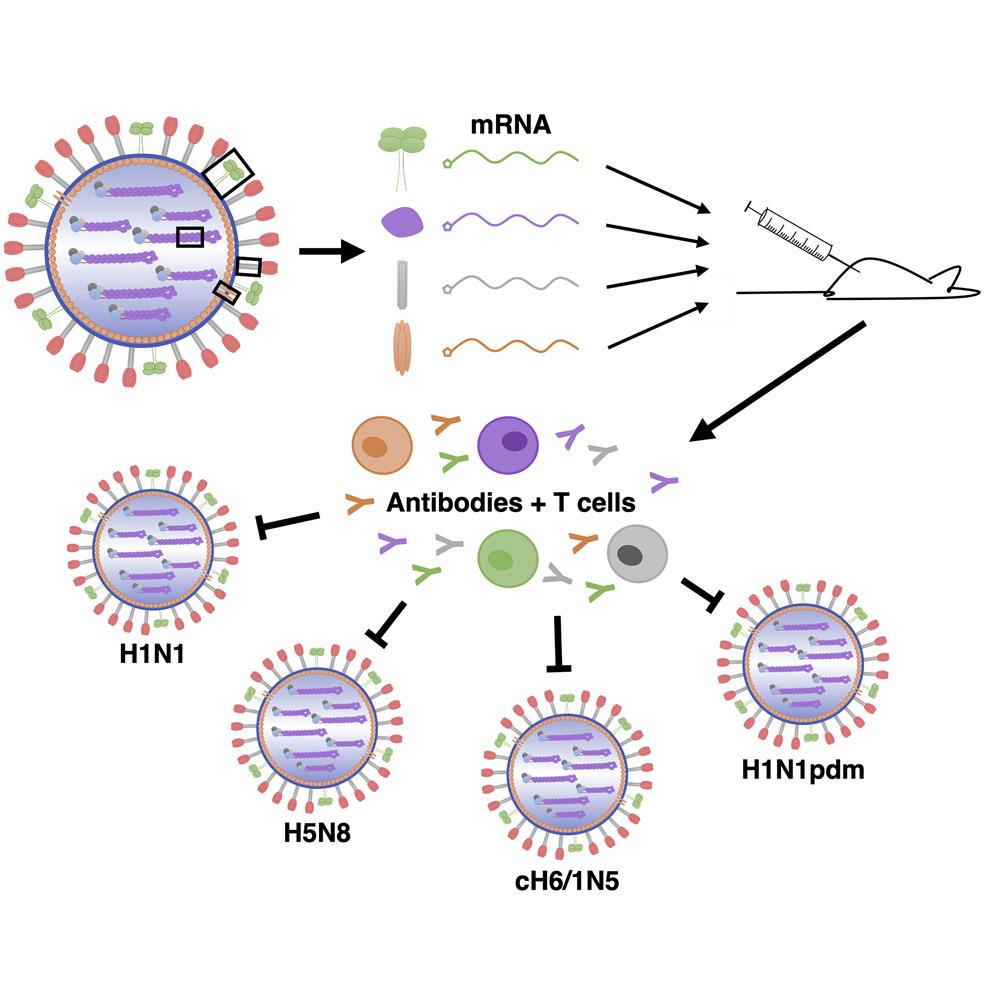 Researchers at the Perelman School of Medicine of the University of Pennsylvania have developed an experimental universal influenza vaccine. This achievement is an extension of basic research conducted in their laboratories that led to the development of mRNA vaccines against COVID. As reported in Science, the multivalent nucleoside-modified mRNA vaccine protects against all known influenza virus subtypes, effectively the Holy Grail of vaccinology.
Researchers at the Perelman School of Medicine of the University of Pennsylvania have developed an experimental universal influenza vaccine. This achievement is an extension of basic research conducted in their laboratories that led to the development of mRNA vaccines against COVID. As reported in Science, the multivalent nucleoside-modified mRNA vaccine protects against all known influenza virus subtypes, effectively the Holy Grail of vaccinology.
The technology involved selecting immunogens from known influenza A and influenza B virus subtypes. Twenty different nanoparticle encapsulated mRNAs were then incorporated into a vaccine. When administered by injection, the mRNA nanoparticles stimulate the production of antibodies. Tests in mice showed a high antibody response extending over four months in duration. In ferrets, the experimental vaccine provided protection against an avian H1N1 strain, that is considered as a potentially pandemic virus. Vaccinated ferrets showed less severe clinical signs than controls and all survived. Two of four unvaccinated ferrets died, and all showed more severe respiratory signs following challenge compared to vaccinates.
 Human clinical trials are planned and if successful, could lead to mRNA vaccines against influenza that would elicit long-term immunity. These would displace the current trivalent, inactivated vaccines that are prepared in advance of influenza seasons based on prevailing strains in the Southern hemisphere during winter.
Human clinical trials are planned and if successful, could lead to mRNA vaccines against influenza that would elicit long-term immunity. These would displace the current trivalent, inactivated vaccines that are prepared in advance of influenza seasons based on prevailing strains in the Southern hemisphere during winter.
It is evident from research on COVID that mRNA platforms allow flexibility relating to inclusion of antigens, rate of production and scalability in manufacture.
It is now evident that mRNA technology has produced a range of vaccines effective against a constantly mutating SARS-CoV-19 virus. Presumably, a similar approach could be deployed against multiple strains of infectious bronchitis virus. This would displace live, attenuated vaccines that ultimately contribute to the emergence of variants in populations of chickens concentrated in large numbers in specific production regions.